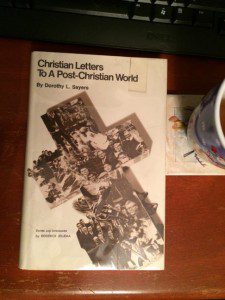It has been a Star Wars season for many. Although I haven’t seen the new movie (or, indeed, any other than the original three – which were fantastic) many friends and family members contributed to the first weekend success of the film. Several have seen it more than once. Anyway, a recent twitter storm and response connected with the film caught my eye (thank you Facebook!…?). Apparently some were critical of the stars of the original movies and the way they have aged, especially Carrie Fisher as Leia. It is her response that has been showing up on Facebook. See here for example; it appears the Facebook version quoted below was edited a bit.
Carrie Fisher on Star Wars trolls: “Youth and beauty are not accomplishments, they’re the temporary happy by-products of time and/or DNA. Don’t hold your breath for either.”
There is an important message here – one that we as Christians above all others ought to understand. Youth and physical beauty are but inconsequential and temporary attributes. But there is no resignation or fatalism with this observation. Our hope is not temporary and age is not the enemy.
 The brouhaha brought to mind once again an important essay by Dorothy Sayers published in Christian letters to a post-Christian world and republished a decade or so later as The Whimsical Christian. (My copy to the right is the earlier edition.) Although both are now out of print, used copies remain available. Sayers deserves a far broader readership than she receives. She was much more than just a writer of detective stories. Her insights (not to mention her incredible power with the pen) still speak today. This post is a lightly edited revision of an earlier post. It provides a fitting reflection as today we end the year, reflect on the past and face the new year.
The brouhaha brought to mind once again an important essay by Dorothy Sayers published in Christian letters to a post-Christian world and republished a decade or so later as The Whimsical Christian. (My copy to the right is the earlier edition.) Although both are now out of print, used copies remain available. Sayers deserves a far broader readership than she receives. She was much more than just a writer of detective stories. Her insights (not to mention her incredible power with the pen) still speak today. This post is a lightly edited revision of an earlier post. It provides a fitting reflection as today we end the year, reflect on the past and face the new year.
The opening section of this collection includes essays on what Sayers terms The Shattering Dogmas of the Christian Tradition. In an essay Strong Meat Sayers starts with a quote from Hebrews:
Anyone who lives on milk, being still an infant, is not acquainted with the teaching about righteousness. But solid food is for the mature, who by constant use have trained themselves to distinguish good from evil. (Hebrews 5: 13-14)
Sayers goes on to talk about maturity, time, and the church. And my, she had a way with words:
There is a popular school of thought (or, more strictly, of feeling) which violently resents the operation of Time upon the human spirit. It looks upon age as something between a crime and an insult. Its prophets have banished from their savage vocabulary all such words as “adult,” mature,” ” experienced,” “venerable”; they know only snarling and sneering epithets like “middle-aged,” “elderly,” “stuffy,” “senile,” and “decrepit.” With these they flagellate that which they themselves are, or must shortly become, as though abuse were and incantation to exorcise the inexorable. Theirs is neither the thoughtless courage that “makes mouths at the invisible event,” nor the reasoned courage that forsees the event and endures it; still less is it the ecstatic courage that embraces and subdues the event. It is the vicious and desperate furry of a trapped beast; and it is not a pretty sight.
Such men, finding no value for the world as it is, proclaim very loudly their faith in the future, “which is in the hands of the young.” With this flattery they bind their own burden on the shoulders of the next generation. For their own failures, Time alone is to blame – not Sin, which is expiable, but Time, which is irreparable. From the relentless reality of age they seek escape into a fantasy of youth – their own or other people’s. … Their faith is not really in the future, but in the past. Paradoxical as it may seem, to believe in youth is to look backward; to look forward, we must believe in age. (p. 18-19 emphasis added)
 Sayers’ point – developed somewhat more completely in the essay (although she is better at the description than the mundane follow through) – is that Christianity is a religion for adult minds, with a depth and power we need to develop, respect, embody, and preach. This is particularly, Sayers thought, important in an increasingly educated (and sneering) post-Christian world. She also thought that the Christian faith – with the beauty of the creeds and the depth of Christian dogma, and the power of scripture, is easily able to stand up to the challenge. The church, however, fails at times.
Sayers’ point – developed somewhat more completely in the essay (although she is better at the description than the mundane follow through) – is that Christianity is a religion for adult minds, with a depth and power we need to develop, respect, embody, and preach. This is particularly, Sayers thought, important in an increasingly educated (and sneering) post-Christian world. She also thought that the Christian faith – with the beauty of the creeds and the depth of Christian dogma, and the power of scripture, is easily able to stand up to the challenge. The church, however, fails at times.
This essay, along with the others in this section of the book, provide a great deal of food for thought. The first time I commented on this selection of quotes many reacted to her rhetorical flair, assumed that she was speaking against youth, and didn’t really ponder the point she was making.
Youth and beauty are temporary attributes – all pass through youth, some possess beauty – but neither of these are attributes that provide anyone hope for the future.
Is Sayers right? Must we believe in age to look forward?
If so, what does this mean?
As I have reflected on this a number of thoughts have occurred.
First – “We Must Believe in Age” does not mean devaluing youth and should not be taken as disrespectful of youthful visionaries. It does not mean that the young(er) people have little to offer and should patiently sit back and wait their turn. In fact all people have much to offer and the perspectives of both youth and age make for a much more robust and lively church. Many great new ideas throughout history have come from people in their twenties and thirties, and even younger. In the Bible we have Jeremiah, Peter, Timothy, David, John all becoming leaders in one fashion or another at a relatively young age. … And remaining leaders into old age. And, of course, Moses, who wasn’t ready to lead until he was an old man.
Second – “We Must Believe in Age” is a reflection of the ideal that we should all mature and grow. I’m not in the same place today as I was 20 years ago – and I won’t be in the same place 20 years from now. I rather expect that 20 years from now today’s twenty and thirty somethings will feel that they still have something important to contribute … and it won’t be exactly what they contribute today (after all, they’ll be middle aged). Thus the expression “We must believe in age” isn’t so much a veneration of age, as it is an expectation of a continuing, valued, and respected process of maturation. Because we expect people to grow, we should be willing to listen to those further on in the journey.
Third – “We must believe in age” is an indictment of the sentiment that “the future is in the hands of the young.” It is an indictment of the flattering sense of importance that this sentiment provides. After all, youth is only a temporary attribute we all outgrow. It is an indictment of the abdication of responsibility for the present it represents. It is an indictment of the sentiment that devalues the contributions of the middle-aged and the elderly. We live in the present, looking toward God’s future.
Finally – Sayers really makes the most important point as she concludes the essay:
The story of Passion-Tide and Easter is the story of the winning that freedom and of that victory over the evils of Time. The burden of guilt is accepted (“He was made Sin”), the last agony of alienation from God is passed through (Eloi, lama sabachthani); the temporal Body is broken and remade; and Time and Eternity are reconciled in a Single Person. There is no retreat here to the Paradise of primal ignorance; the new Kingdom of God is built upon the foundations of spiritual experience. Time is not denied; it is fulfilled. “I am the food of the full-grown.” (p. 22)
The future does not rest in the hands of the young. It rests with all of us in the ever moving present and in the age to come. The victory over death is also a victory over the evils of time – for the evil of time lies only in the finality of death. Youth is a temporary attribute. We will all age, hopefully growing in wisdom and strength as we do so.
If we believe the Christian message then we are all part of the future and should be valued as such. We look forward to what the future brings.
A great reflection as we begin a new year. Welcome 2016. May God bless.
What does it mean to believe in age?
If you wish to contact me directly you may do so at rjs4mail[at]att.net
If interested you can subscribe to a full text feed of my posts at Musings on Science and Theology.











